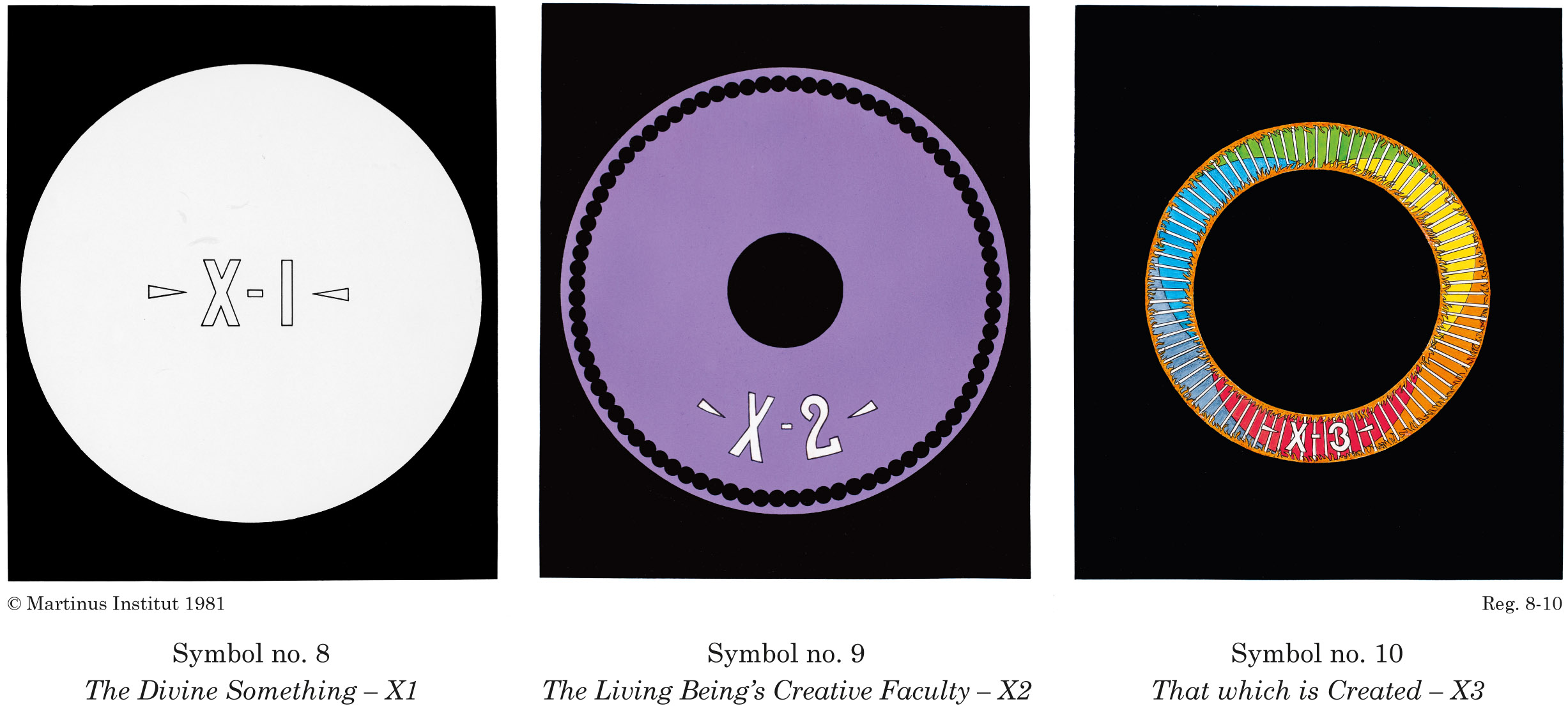The Eternal World Picture, vol. 1
8.3 The triune principle
The living being's analysis, and thereby also the basic analysis of the universe thus constitute a "triune principle", which in its analysis constitutes the "I", the "faculty to create" and "that which is created".
These three principles are expressed as triune because they are unshakeably indivisible.
If the I did not exist, the faculty to create could not exist either.
Who would then direct or use it?
But if the "faculty to create" did not exist, then "that which is created" would also be an impossibility.
The living being consisting of these three principles is here evident as an eternal reality, whether this reality is the Godhead or the Sons of God.
The I and the faculty to create can never at any time have begun, because in that case there would beforehand have existed a time when these phenomena did not exist, and how could they then have come into existence?
"Something" cannot come into existence from "nothing", just as "nothing" cannot possibly become "something".
The triune principle is thus the absolute foundation of the living being's experience of life.
It is in reality this triune principle which, in the Christian world religion, is symbolised by the expressions the "Father", the "son" and the "holy spirit".
In later analyses we shall see how "X1" is the "Father", "X2" is the "son" and "X3" is the "holy spirit".
We shall come to see that the "Father" is a symbolical expression of the eternal and absolutely only real "Godhead" of the universe.
The "son" is a symbolical expression of the living beings of the universe, while the "holy spirit" is a symbolical expression for the consciousness of this sole all-encompassing Godhead.

